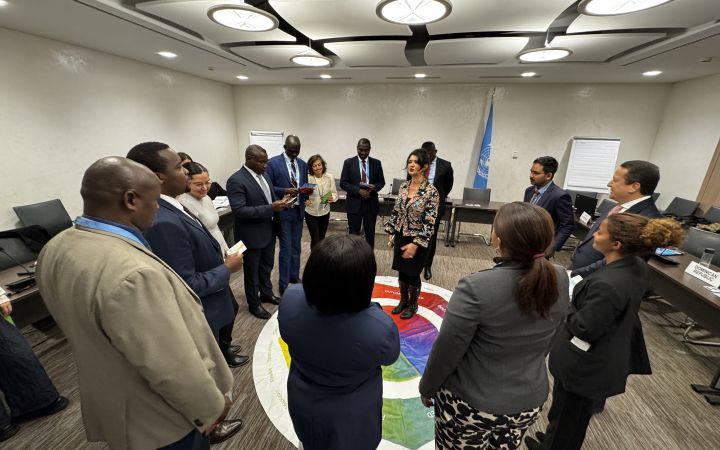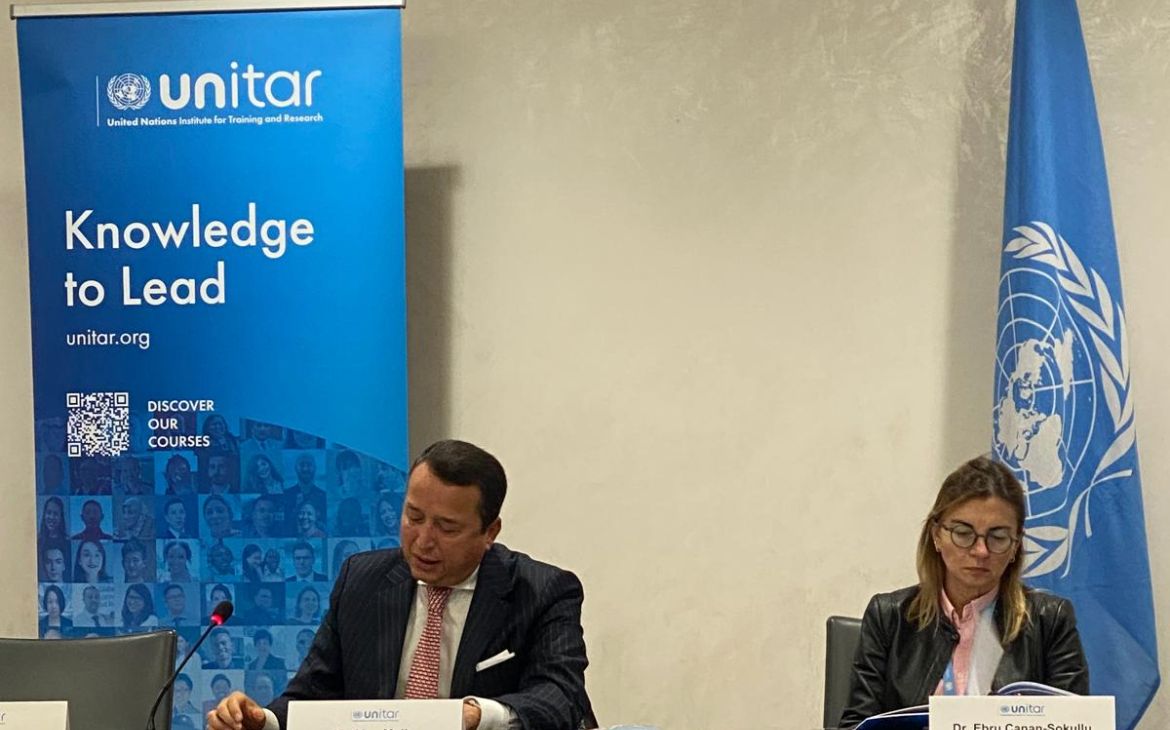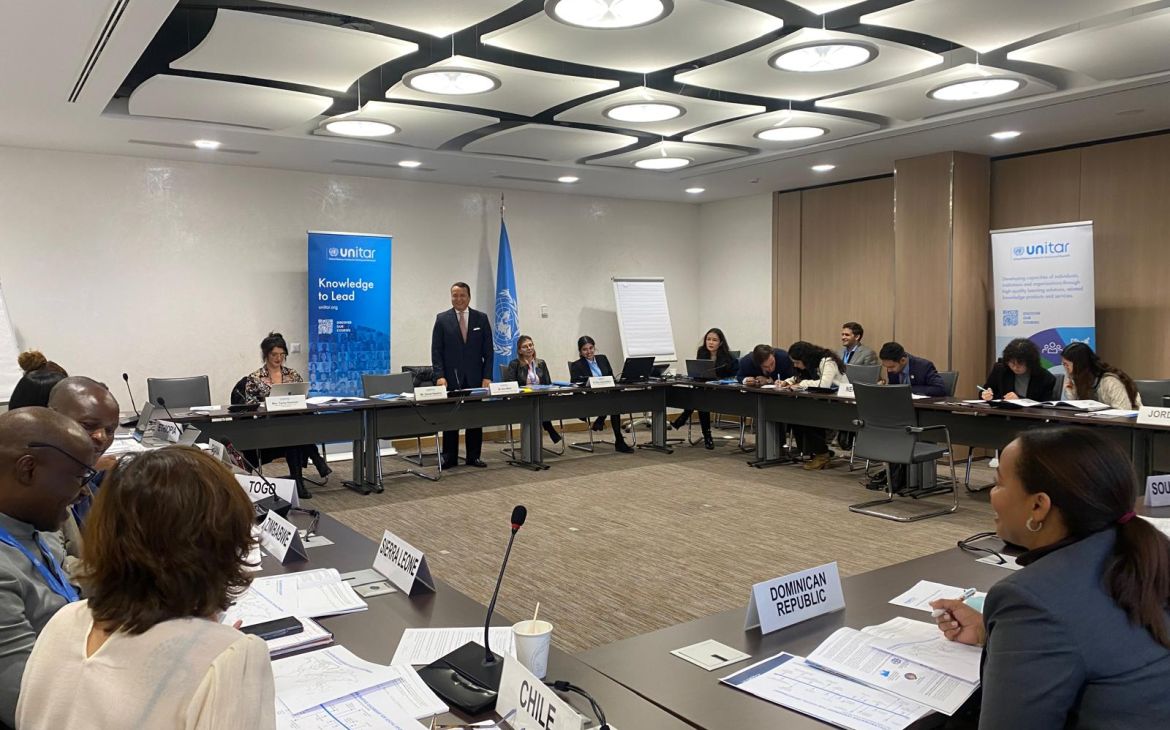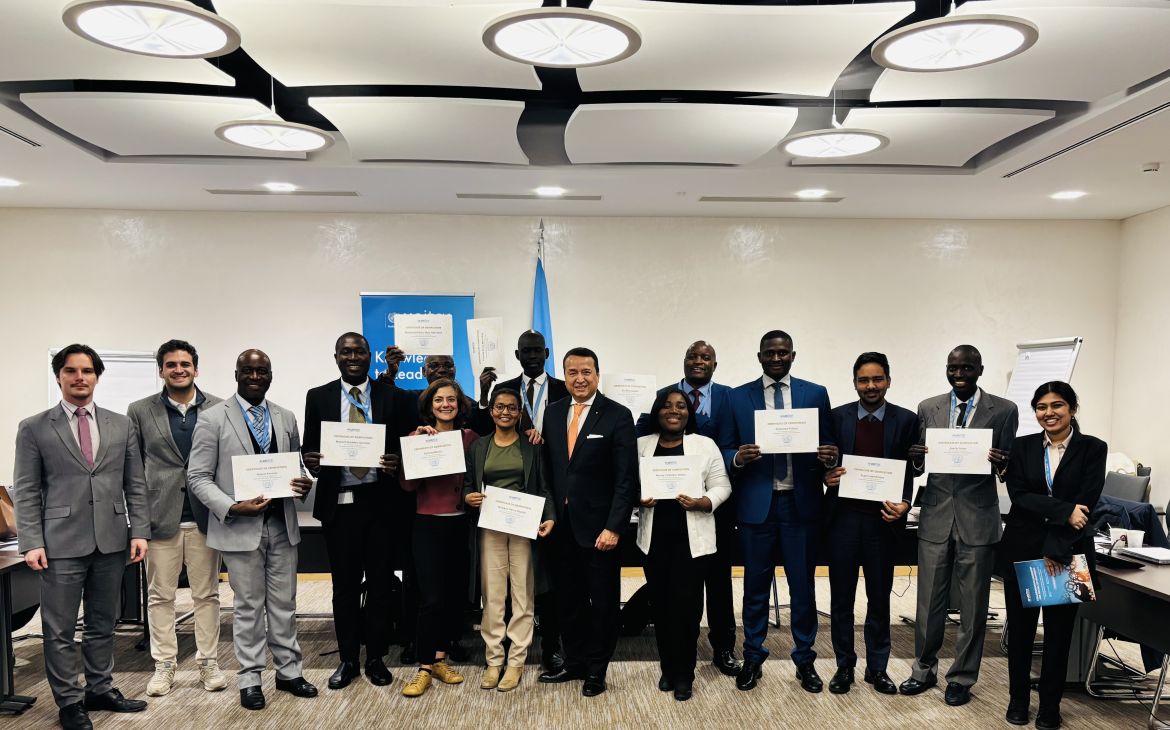Strengthening Skills for Inclusive and Effective Collaboration
14 November 2025, Geneva, Switzerland – UNITAR successfully concluded the 2025 edition of the Collaborative Leadership for Social Development workshop from 10 -12 November 2025, bringing together diplomats, government officials, and representatives of Permanent Missions based in Geneva for a three-day capacity-building training. The workshop strengthens leadership and collaboration skills among Geneva’s international community, emphasizing inclusivity, responsibility, and shared action toward the Sustainable Development Goals (SDGs).
The workshop commenced on 10 November with a session delivered by Mr Alex Mejia, Director of the Division for People and Social Development at UNITAR, who highlighted the crucial role of collaborative leadership in addressing today’s complex social and global challenges. He emphasized the capacities required for effective partnership and collective action, noting that true leadership in global contexts is not about authority but about enabling others and nurturing cooperation.
Ms Tania Hummel, Senior HR Director and Executive Coach at Lumina Learning, led the next sessions, where participants explored what leadership means in the international context and reflected on the challenges leaders face in fostering cooperation across diverse teams. She examined different approaches to leadership and the building blocks of effective leaders. Participants engaged in personal reflection exercises, identifying their own strengths, styles, and areas for growth, while debunking common myths about leadership.
On Day 2, Mr Mejia began by addressing Barriers to Collaboration, highlighting how they can impact productivity. Participants discussed how these barriers could be reframed as opportunities for growth through inclusive and transparent leadership.
Ms Ebru Canan-Sokullu, of the Division for People and Social Development at UNITAR, followed with a session on Overcoming Barriers. She discussed the relevance of responsible leadership and its connection to the SDGs, emphasising that effective leaders must not only manage but also model ethical behaviour and accountability, ensuring that collaboration leads to sustainable and equitable outcomes.
An engaging question-and-answer session followed, during which participants reflected on their personal experiences and explored ways to integrate responsible leadership principles into their professional environments. The day concluded with a discussion on practical tools relevant to each phase of collaboration.
The final day, 12 November, centred on transforming learning into concrete strategies and action plans for collaboration in the last phase of the 2030 Agenda for Sustainable Development.
Mr Mejia explored pressing global challenges, such as persistent social inequalities and the need for poverty-to-prosperity transitions, highlighting the role of collaboration in addressing them. He referenced the UNDP’s work on Poverty-to-Prosperity Transitions launched at the 2025 World Summit for Social Development in Doha.
Participants then worked in teams to develop strategies that promote effective collaboration within their respective institutions. Through an interactive exercise, they identified actions to strengthen partnerships and ensure their leadership practices contribute directly to social development goals.
Finally, Ms May East, Author and Director of the Cities Programme of the UN House Scotland, presented a case study on Gender-Transformative Leadership in Cities, highlighting how inclusive and gender-responsive leadership can drive sustainable urban development.
In his closing remarks, Mr Mejia commended participants for their commitment and engagement, underscoring that:
Collaborative leadership remains essential to achieving the vision of a more just, inclusive, and sustainable world.





